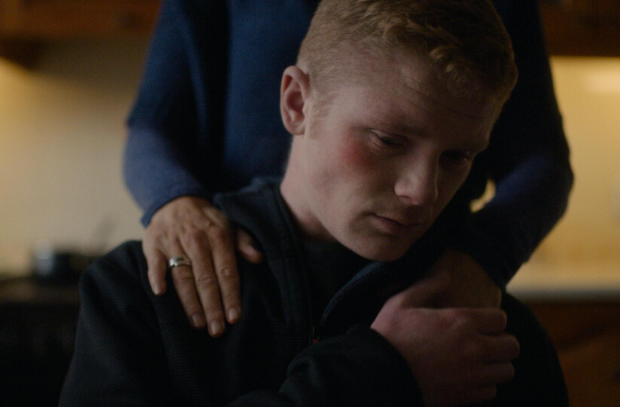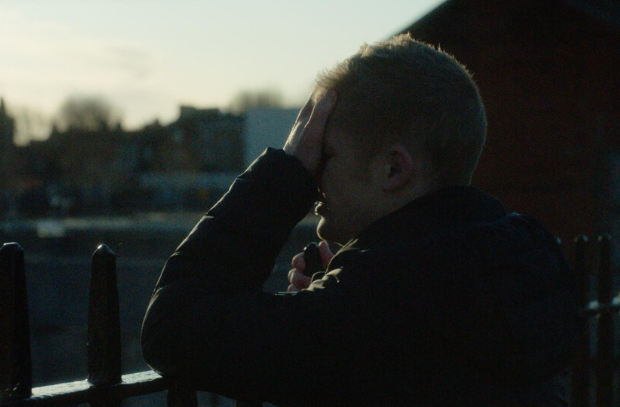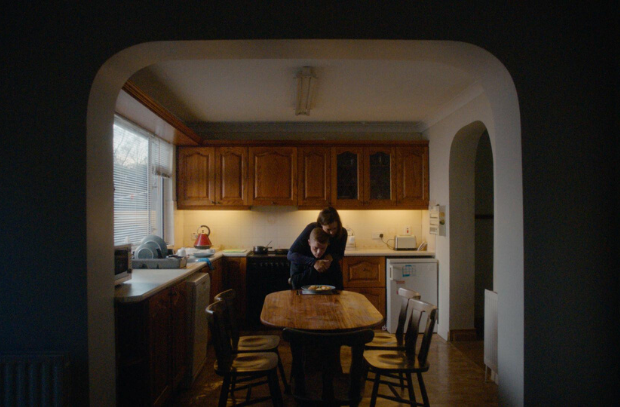
Scrap Taking Things on the Chin, Banjoman Director Steve Kenny Shows the Importance of Masculine Vulnerability

A creative collaboration between the Banjoman team and newest director, Steve Kenny, ‘If’ is a film that works to break down the stigma surrounding what it means to be a man. Based on a Rudyard Kipling poem of the same name, this spot aims to give young men the permission to be vulnerable without feeling like it challenges their masculinity.
In an interview with LBB’s Sunna Naseer, director Steve Kenny shares the pressing importance of this issue and talks through the creative process for his first piece with Banjoman Films.
Q> How did the idea for ‘If’ come about and what issues does the film look to address?
Steve> Myself and the Banjoman guys have been wanting to work together for a while but we were waiting for the right project, something we were all very passionate about. Then I had the idea to do something with Rudyard Kipling’s poem as it has always meant a lot to me.
The overarching message within the film is that it’s ok to be vulnerable and you don’t always have to fight the world. A lot of the coping mechanisms and advice that we’re given as young men is not helpful. We’re taught to be a lone wolf, to take everything on the chin and man up, for want of a better phrase. But sometimes being vulnerable is what makes you stronger.
So I had that concept of traditional advice around what it takes to be a man not really holding up anymore and I thought it’d be nice to juxtapose that with images of what it’s like to be a young guy in the current day and how all that advice may not be that easy to follow when you’ve got the pressures of life on you.
Q> Tell us a bit about the narrative and the journey that the character goes on.
S> It starts towards the end where he’s wandered off alone with a lot going through his head. Then it flashes back to reveal glimpses of recent moments in his life. We see him lashing out at people in disputes; we see him alienated at a party, surrounded by crowds but still very alone; we see more intimate moments of him scrolling through social media showing images of what a man should look like; then we see him scrutinising his own appearance with feelings of inadequacy. He goes home a broken man, sat at the table lost in thought, but finally, it’s the touch of his mother that comforts him, giving him permission to be vulnerable.
Q> How did you go about casting the character?
S> I’d actually seen the lead, Corey McKinley, in ‘71 and he’s been in a few other Irish films - most recently Cardboard Gangsters. We were really fortunate that he got on board straight away as he’s a great actor and a pleasure to work with. He was able to get into the zone so quickly and the emotion really came through on screen.

Q> What was the overall feeling you wanted to evoke with the film?
S> I want the piece to give young men the permission to be vulnerable. I don’t think there’s enough of that messaging out there at the moment. It’s ok to feel broken and to show it.
I also want to highlight that strength and what makes you a better man doesn’t always come from masculine influences. Strength also comes from the feminine presence in our lives such as the character’s mother in the film. A lot of the pieces on this issue that are currently out there only focus on men and their fathers, which is important but neglects a whole half of society.
Q> Do you feel that the problem is particularly prevalent in Ireland?
S> No more so than in any other country. Culture is so globalised now and Irish kids look to American and UK role models. There are certain crutches that are maybe more prevalent in Ireland, such as issues around alcohol, violence and a ‘just get on with it’ attitude which is unhelpful when you’re suffering through problems.
Q> How do you think men should change their habits to be better equipped to overcome vulnerable moments?
S> I don’t claim to have the answers but I want young men to know that it’s ok to feel shit, inadequate or vulnerable. Most of all, it’s ok to show that to people.
Try not to bottle things up and suppress them as you’ll just feel more frustrated and confused. I think in general there has been a huge culture shift around the social acceptability of men talking about their feelings. It’s become far more acceptable in the last few years for men to talk about their feelings and insecurities. I hope that continues to increase and becomes the norm. I think younger generations are much better at this than we maybe were.
Q> What challenges are men facing today? Is social media harming our mental health?
S> I don’t think it’s specific to men. Social media is a great tool to connect people and it’s not all bad. There’s a very fine line but certain content on there promotes an unattainable lifestyle and image which is damaging when you’re bombarded with it all the time. There’s big pressure to live up to it and you start to believe that it’s real life. Younger people in particular need to be aware that not everything they see online is a direct representation of reality.

Q> This was your first commercial, where did you draw your inspiration from and how is it different to your other work?
S> I come from a predominantly narrative background - I’ve made a lot of short films and do a lot of writing. Banjoman's Matt D'Arcy (head of production) and Dermot Malone (founder and director) saw a film of mine at a festival about a year ago and we’ve been chatting since.
I approached this brief the same way that I do my film work but everything is super condensed in short form. It was actually quite refreshing and energising having to get through everything quickly.
Q> What was the most challenging aspect of the project?
S> Having not done anything of this length before, the challenge was in figuring out if I could get everything I wanted to get across in the short space of time that I had - whether it would translate from the script to the screen. Thankfully it did!
In narrative drama you have longer scenes to flesh things out and demonstrate them, so you feel more confident that the intention of your piece will come across. With short form you’re trying to get things across in just a few seconds so there was a little bit of the unknown at the start. It’s great though because it forces you to be really rigorous about your choices.
Q> What are you most proud of / what was the most fun part of the project?
S> I loved the shoot. I love being on set with everybody with the creative energy of collaborating and seeing everyone enrich what you already have in your mind tenfold. It’s a really rewarding experience as a director.
Q> What are you most looking forward to working on with Banjoman Films?
S> I got on great with producer, Matt D'Arcy, and we really worked well together. I'm blown away by the high quality of what he and the rest of the Banjoman team are producing so I'm really looking forward to telling more short stories with them.













